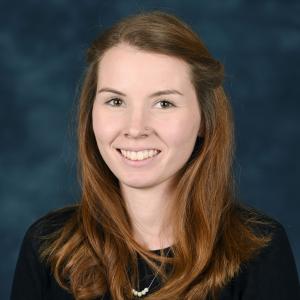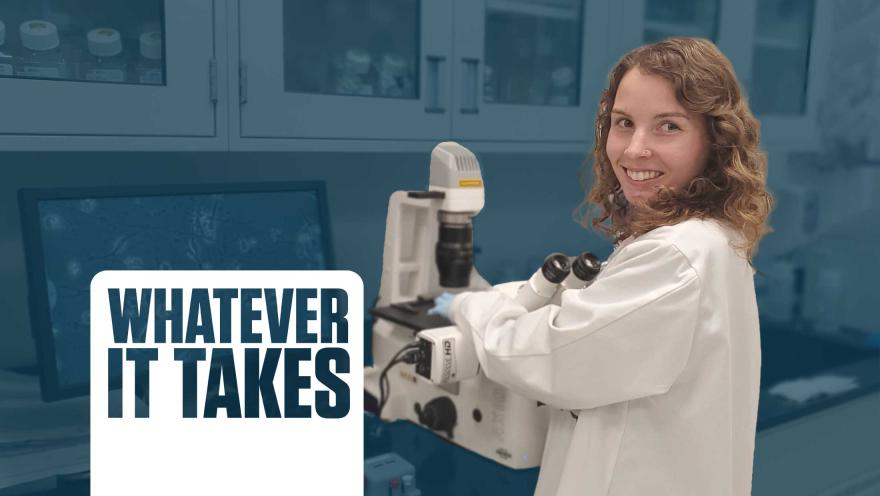This year The ALS Association has pledged to do whatever it takes to make ALS a livable disease, which means longer lives for people living with ALS, greater quality of life for people living with the disease and ultimately the prevention of ALS altogether. Researchers like our 2020 Milton Safenowitz Postdoctoral Fellowship Program recipients are playing an important role in helping to make this happen.
Our Milton Safenowitz Postdoctoral Fellowship Program continues to support young scientists and is the only program of its kind specifically funding early ALS postdoctoral fellows eagerly searching for a cure. Founded in memory of Mr. Safenowitz by the Safenowitz family through The ALS Association Greater New York Chapter, this unique program encourages young scientists to enter and, importantly, to remain in the ALS field.
More than 75% of the postdoctoral fellows we fund go on to start their own labs to continue studying ALS and mentor other young ALS researchers. The rest of the Safenowitz fellowship program graduates typically go on to careers in the biomedical industry, nonprofits, and medical writing, with many still staying in the ALS space.
This year, we are proud to support eight new postdoctoral fellows out of a highly competitive applicant pool. Over the next few months, we will highlight each fellow, their dedication and unique contributions to ALS research, as well as their interests outside of the lab.

Dr. Lauren Gittings, whose award was made possible directly through funds provided by The ALS Association Oregon and SW Washington Chapter, is a postdoctoral fellow from the Sattler Lab at the Barrow Neurological Institute in Phoenix, Arizona. We recently spoke with Lauren to learn more about her and her unique project focused on identifying cellular and molecular changes that underlie cognitive impairment in ALS patients carrying the C9orf72 (C9) repeat expansion mutation.
Can you briefly describe your academic background?
I received my Bachelor of Science degree in 2014 from the University of Bath in the UK, where I studied Natural Sciences with an emphasis on pharmacology. I then joined the Ph.D. program in Neurodegenerative Diseases at University College London in the UK, where my research focused on the pathology of C9orf72 ALS/FTD. After completing my Ph.D. in 2018, I moved to Phoenix, Arizona to continue my research on C9orf72 ALS/FTD in the laboratory of Dr. Rita Sattler at the Barrow Neurological Institute.
It is said that every 90 minutes, someone is diagnosed with ALS and every 90 minutes someone dies from the disease. Time is not on the side of those who are diagnosed, and no matter what issues we are all currently facing in the world, ALS won’t stop, so neither will we. What are you doing to address the urgency our ALS community is feeling?
The only way we can address the urgency of finding efficacious treatments for ALS patients is by working together, collaboratively, and synergistically. Taking advantage of the expertise of individual laboratories and merging this expertise will facilitate novel therapeutic target discovery and future drug development. Based on this concept, my project is done in close collaboration with two other laboratories, who complement my scientific expertise. We meet on a regular basis to exchange data and ideas, which will hopefully enable us to make progress together faster and more efficiently.
What are the goals of your funded research project?
My research in the Sattler laboratory focuses on C9orf72 ALS/FTD – which is caused by a hexanucleotide expansion mutation (GGGGCC) in the C9orf72 gene. This is the most common genetic cause of ALS and patients with this mutation may develop either ALS, frontotemporal dementia (FTD), or symptoms of both diseases. However, it is currently unknown what biological factors cause some patients to develop the cognitive problems associated with FTD, while others develop motor symptoms associated with ALS. The goal of my research is to identify changes in brain cells that are most affected in FTD. To achieve this, I will compare the gene expression profile of brain cells from postmortem patient brain tissues that clinically exhibited symptoms of FTD, ALS and combined ALS/FTD. I will then confirm the gene expression changes in neurons derived from FTD and ALS patients grown in cell culture and use these cells to identify the biological consequences of the changes and how they may cause the cognitive symptoms of FTD. This work will contribute to our understanding of the biological pathways underlying cognitive impairment and facilitate more effective diagnosis and therapeutic management of FTD and ALS.
Why did you decide to study ALS over other diseases?
I remember learning about neurodegenerative diseases during my undergraduate degree and being amazed that we knew so little about them or how to treat them, especially since these diseases affect a large portion of the population. This inspired me to pursue a Ph.D. in neurodegenerative diseases. I initially wanted to focus my research on dementia, but I became fascinated by the finding that the same genetic mutation in the C9orf72 gene can cause ALS, frontotemporal dementia, or a combination of the two diseases. This led me to focus my research on the cognitive dysfunction and dementia-symptoms that are associated with C9orf72 ALS/FTD.
What do you like about working in the ALS research field?
I like that the ALS research community is very collaborative. My project involves working with several other ALS labs towards a common goal and I think that utilizing the expertise of each lab and collaborating together is the best and most efficient way to achieve our research aims.
How might your work impact the ALS community?
In addition to changes in motor neuron function, cognitive and behavioral dysfunction, such as personality changes, irritability and deficits in executive functioning tasks, are frequently reported in ALS patients. These symptoms are reflective of the symptoms of frontotemporal dementia (FTD) and in fact, it is estimated that between 8 and 14% of ALS patients would meet the full diagnostic criteria for FTD. My research aims to identify the biological factors that make ALS patients susceptible or resistant to developing these cognitive problems. By identifying these factors, it is hoped that clinicians will be able to use this to better diagnose and manage problems with cognitive functioning in ALS patients that develop cognitive problems. This will not only improve the quality of life for ALS patients suffering from cognitive impairments but will also educate and better prepare the care takers with important knowledge on these additional symptoms their loved one exhibits.
Where can people get more details about your research project?
More information about my research, as well as the other exciting projects ongoing in the Sattler lab, can be found HERE.
It is often said that ALS is one of the most complex diseases to understand. Yet, you go to work every day to tackle the challenges of your research. What gives you hope that there will someday be a world without ALS?
Our scientific understanding of the genetics, pathology and cell biology underlying ALS has advanced tremendously in the past 10 years, and this is reflected by the number of different clinical trials currently ongoing for ALS patients. The rate at which several of these important discoveries were made and then put to use as potential therapeutics gives me hope that not too far in the future scientists will be successful in finding an effective therapy or cure for ALS.
What do you like to do when you aren’t in the lab?
Outside of the lab, I love being active in the Arizonian sunshine. I enjoy hiking, cycling, swimming and generally exploring the beautiful scenery in the state. I also enjoy baking and sharing my baked goods with the rest of the Sattler lab.
Is there anything else you’d like to add?
I would like to thank The ALS Association for awarding me with this fellowship and the Safenowitz family for making this fellowship available. I would also like to thank all the ALS and FTD patients that have generously donated biological samples that are being used in my research. These samples are an incredibly valuable resource to the scientific community and greatly help to advance the biological understanding of ALS.
To learn more about the research we fund, visit als.org HERE.


Join the conversation. Please comment below.